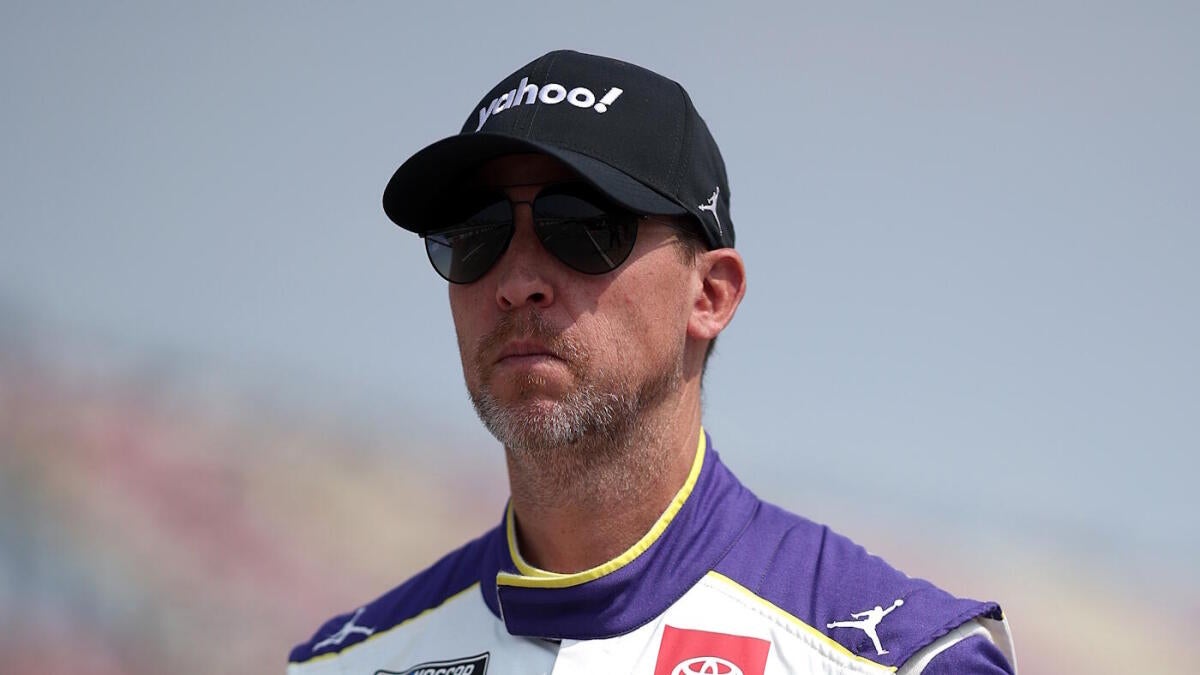Balancing the Checkered Flag and Family Ties: Denny Hamlin’s Choice to Miss NASCAR Mexico City Race
The spotlight in professional sports often shines brightest on athletes’ achievements and milestones. However, occasionally, a decision beyond the track or field reveals the deeper humanity of those behind the helmets and jerseys. Denny Hamlin’s choice to miss the inaugural NASCAR Cup Series race in Mexico City to welcome his third child provides a powerful narrative blending career and personal life, underscoring values that resonate far beyond racing speeds and stats.
The Unyielding Streak and Its Significance
Denny Hamlin’s career is a testament to endurance, skill, and resilience. His streak of 406 consecutive NASCAR Cup Series starts—unbroken since 2014—reflects both his physical durability and unwavering focus. Foregoing even a single race has traditionally been rare for Hamlin, given his competitive spirit and consistent high finishes; in 2025 alone, his three victories including a recent win at Michigan demonstrate peak performance.
This rare pause is not a signal of faltering commitment but a conscious choice highlighting the weight of personal moments over professional momentum. The longevity of his streak amplifies the significance of his decision, casting a spotlight on the event compelling him to step away. It tells a story that transcends statistics and taps into the athlete’s humanity.
Family as Pole Position: The Birth of a Son
The catalyst behind Hamlin’s absence from the race is deeply personal—the birth of his son on June 11, 2025. This joyous occasion marks his second child with partner Jordan Fish and his third child overall. It speaks to Hamlin’s openness about his priorities; earlier interviews had already conveyed his readiness to pause his racing commitments to be present for such milestones.
Opting to be with family during a critical career juncture illustrates a conscious balancing of life’s competing demands. It challenges common assumptions that professional athletes must sacrifice personal connections for career advancement, instead modeling a path where life’s precious moments receive rightful precedence.
Breaking New Ground: The NASCAR Mexico City Race
The significance of the NASCAR Cup Series race at Mexico City extends beyond Hamlin’s personal narrative. As the first Cup race held in Mexico, it represents a historic expansion of the sport’s borders and audience. For a prominent figure like Hamlin to miss such an event underscores the profound nature of his choice.
His absence leaves a notable gap in one of NASCAR’s marquee races—a ceremony of international ambition and inclusivity that aims to attract diverse fans. It also places Joe Gibbs Racing in a challenging position to uphold competitive intensity without their star driver on the track.
Strategic Substitution: Joe Gibbs Racing’s Contingency
In response, Joe Gibbs Racing appointed Ryan Truex as the backup driver for Hamlin’s No. 11 car. Truex brings past Cup Series experience, though his recent activity is limited, last racing in 2014. This move reveals the vital role of depth and preparedness within racing teams, who must anticipate and adapt to sudden changes.
Truex’s opportunity to pilot a top-tier car underlines JGR’s resilience and tactical foresight. While Truex may not replicate Hamlin’s consistent success immediately, his participation helps maintain team presence and owner points, which are crucial for season standings and sponsorship continuity.
Navigating the Playoff Landscape with NASCAR’s Waiver Policy
NASCAR’s playoff framework typically demands constant participation to retain points and eligibility. However, its waiver policy provides critical flexibility for athletes facing legitimate medical or family situations. The birth of a child qualifies under this regulation, allowing Hamlin to avoid penalization or loss of playoff position despite missing the Mexico City race.
Joe Gibbs Racing’s confirmation to apply for the waiver exemplifies the sport’s evolving understanding of athletes’ holistic well-being. It fosters an environment where drivers can integrate major life events without jeopardizing their competitive futures, adding a layer of compassion to a fiercely competitive environment.
Implications for Season Standings and Team Dynamics
At the point of Hamlin’s decision, he ranked third in the points standings, fortified by three wins and a substantial points buffer. Although sitting out one race inherently carries risk, NASCAR’s waiver ensures he seamlessly continues to compete for season honors.
This brief absence also tests the team’s strategic adaptability, as the substitute driver competes for owner points essential to the entire racing entity’s success. The balancing act between driver and team objectives is delicate but managed with forward-looking coordination.
More broadly, Hamlin’s prioritization of family moments sets a positive precedent within the sport, reminding peers and supporters alike that personal wellbeing and competitive excellence need not be mutually exclusive.
Resonance Beyond the Race: Public and Fan Response
Hamlin’s choice quickly transcended routine sports news to become a narrative about balance, empathy, and human connection. Media outlets and fans voiced widespread support, applauding the decision to place family above career pressures.
This response reflects shifting cultural attitudes that increasingly value the personal lives and mental health of athletes. The embrace from NASCAR’s community suggests an expanding recognition that champions are more than their on-track results—they are whole individuals with lives beyond the race.
Conclusion: Prioritizing What Matters Amid Speed and Competition
Denny Hamlin’s decision to miss a historic NASCAR race in order to attend the birth of his son elegantly bridges the often-competing worlds of professional sport and personal life. It underscores a profound truth: moments of family carry weight that even the most driven athletes acknowledge and respect.
NASCAR’s accommodating waiver policy and JGR’s readiness to adapt underline an encouraging culture of flexibility and support. Hamlin’s action not only honors his own values but also signals a broader shift in how athletic excellence harmonizes with human priorities.
In stepping off the gas momentarily, Hamlin offers a potent reminder that behind every champion lies a life rich with meaning—proof that sometimes the most powerful victories occur away from the racetrack.

